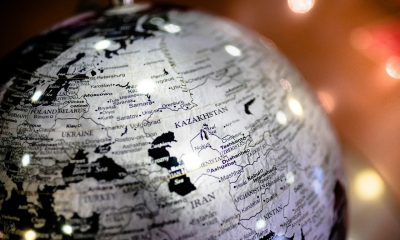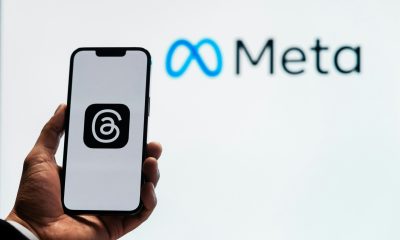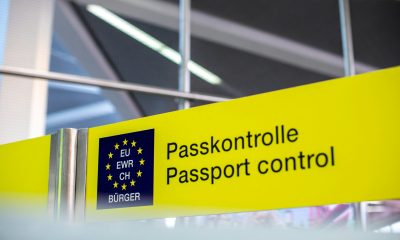коронавирус
#EAPM - Транспарентноста може да значи доверба, дури и во време на несигурност: Регистрирајте се сега!

 The one and only certain thing about the COVID-19 crisis is that we’re in one, пишува Европска алијанса за Personalised Медицина (EAPM) извршен директор Денис Horgan.
The one and only certain thing about the COVID-19 crisis is that we’re in one, пишува Европска алијанса за Personalised Медицина (EAPM) извршен директор Денис Horgan.
Well, leaving aside all of the nonsense, fake science and conspiracy theories we’ve all seen out there in SocialMediaLand and beyond, what do we actually know for sure? Not much, really…
How effective are lockdowns? Is developing a ‘herd immunity’ a better idea? Do masks really work in a general public context? Is self-isolation mentally more damaging than the risk of infection? Can kids get it? Are we immune after we have it once? Are we getting accurate figures?
Meanwhile, will there be a second and even third wave? Can we do enough testing and tracing to make a concrete difference? Is it better to kick start the economies to stop people starving when weighed against the higher risk of people dying as we look to start the world turning again? The questions go on and on…
Even six months from the start of the outbreak in China we are lacking in so much information about this often deadly virus. Meanwhile, we just try to do as our governments ask us (or tell us) and try to trust the science, such that it is, and get down on bended knees praying for an elusive and far-off vaccine.
And with that in mind, on Friday 8 May (10-12h), a ‘virtual’ conference/webinar will take place run by FutureProofing Healthcare and EAPM. More on that below...
Tell us the truth. We can take it
There is much evidence that the majority of the general public (leaving aside those in denial) is capable of knowing the truth and dealing with it. It would just be nice to actually have all of it. We have more than two million global cases of the novel coronavirus and, in a world this big and populated, that’s not even going to be the tip of the iceberg quite probably. But, then again, we don’t know.
Also, guessmology suggests that around 25% of people who have the virus show no actual symptoms. You don’t have to be a mathematical genius to question the accuracy of that premise. It’s an informed guess, fair enough, but a guess it remains.
America’s Dr. Anthony Fauci, who is head of the National Institute of Allergy and Infectious Diseases at the National Institutes of Health, and a renowned expert (whether US President Donald Trump likes it or not) says it’s actually between 25 and 50%. Oh, OK then…
We. Just. Don’t. Know.
But we’ve heard plenty, haven’t we? Some of it nonsense. Or probably. For example, the chances of the virus disappearing in a puff of smoke with decent, warmer weather seems like a pipe dream - especially given the differing climates across the planet - so at least we know that’s mostly nonsense.
Incidentally, in case you didn’t know, such a type of uncertainty over facts and numbers being discussed here is called ‘epistemic uncertainty’. You can count on that, at least. Studies have, of course, been conducted into the effects of uncertainty on the public. Scientifically acknowledged uncertainty, that is. Which is different from simply not knowing but is, instead, the absolute knowledge that we don’t know. Simple, right?
Apparently, aside from some quarters saying that we’ve had enough of experts it seems at least to be the case that these experts coming out and saying that they are not entirely sure about x, y or z doesn’t necessarily undermine public confidence in these people and what they do know. We can, it seems, handle the truth about, ahem, not actually knowing the truth. It seems as though being trusted has less to do with projecting an aura of infallibility, but more about being honest and transparent. Scientists tend to be better at this on the whole than governments, but let’s not go too far down that road…
So, in a nutshell, although none of us likes lacking information, we tend to be OK if we feel that we’re being told where the gaps are and, as a result, seem capable of adapting to changes as new information - proven - becomes available. It’s about honest communication, by all accounts. But let’s have the info when it’s there, please But it remains the case that, especially in a situation such as the COVID-19 crisis, accurate information is vital and sensible reactions to it equally so.
Policymakers - those deciding right now on how to go about reducing restrictions and formulating exit strategies - absolutely require accurate information from those stakeholders expert enough to give it. It also helps if leaders and policymakers actually listen, of course, rather than going off half-cock on, for example, a Twitter account and moving the goalposts on a near-daily basis.
The EAPM has spent the best part of a decade engaging with multi-stakeholders to glean accurate information on personalised medicine and all its many and varied aspects, while engaging with policy makers, governments and healthcare systems to make the most of fast-developing new science and processes for the benefit of Europe’s patients.
And with that in mind as mentioned above, on Friday 8 May (10am-12 noon), a ‘virtual’ conference/webinar will take place run by FutureProofing Healthcare and EAPM. The banner title is FutureProofing against health demand shocks: What Europe and Asia can learn from the COVID-19 pandemic and implications for digital health. Please register овде.
The outcomes from the session on Data Governance and Digital Health, for example, will feed into a later bridging conference to be held in June at the end of the Croatia Presidency of the EU and the start of Germany’s subsequent six months at the helm. Given the current global attention to healthcare system capacities and the heightened interest in public health in general, this online conference will address what can be done to ensure that the health systems of the future are resilient enough to not only handle shocks like a global pandemic but also respond to underlying forces that are shaping future health-care needs.
As suggested above, one focus is on how countries are using health data and digital health solutions in responding to the pandemic with a view to identify some best practices and discuss what the cross-regionals learnings from continents like Asia and Europe can be.
On top of this, we will discuss the implications for digital health, and how such solutions can be used to manage public health, diagnose and treat diseases as well as predict ill-health and how such solutions can be part of the toolbox to rebuild health-care systems after the pandemic.
But this is just part of the ongoing conversation, as the aspects discussed in respect of public trust above obviously dovetail into our general trust (or otherwise) of Big Data, especially in the highly personalised world of individual healthcare information, it’s collection, sharing and ultimate use. Plenty to talk about. And find out…
Here that link again where you can register овдеи придружете им се на звучниците кои вклучуваат:
Remереми Лим, Националниот универзитет на Сингапур; Рејчел Фризберг, Roche APAC Area Head (Singapore); Кришна Реди Наламала, Country Director, ACCESS Health International, India, Кришна Реди Наламала, Patient Access Partnership, (Bulgaria)
Споделете ја оваа статија:
-

 Конфликтипред 3 денови
Конфликтипред 3 деновиКазахстан чекори: Премостување на јазот Ерменија-Азербејџан
-

 проширувањепред 4 денови
проширувањепред 4 деновиЕУ се сеќава на оптимизмот од пред 20 години, кога се приклучија 10 земји
-

 Закон за дигитални услугипред 5 денови
Закон за дигитални услугипред 5 деновиКомисијата се движи против Мета поради можни прекршувања на Законот за дигитални услуги
-

 СОВИД-19пред 3 денови
СОВИД-19пред 3 деновиНапредна заштита од биолошки агенси: италијанскиот успех на ARES BBM - Маска за био бариера
























